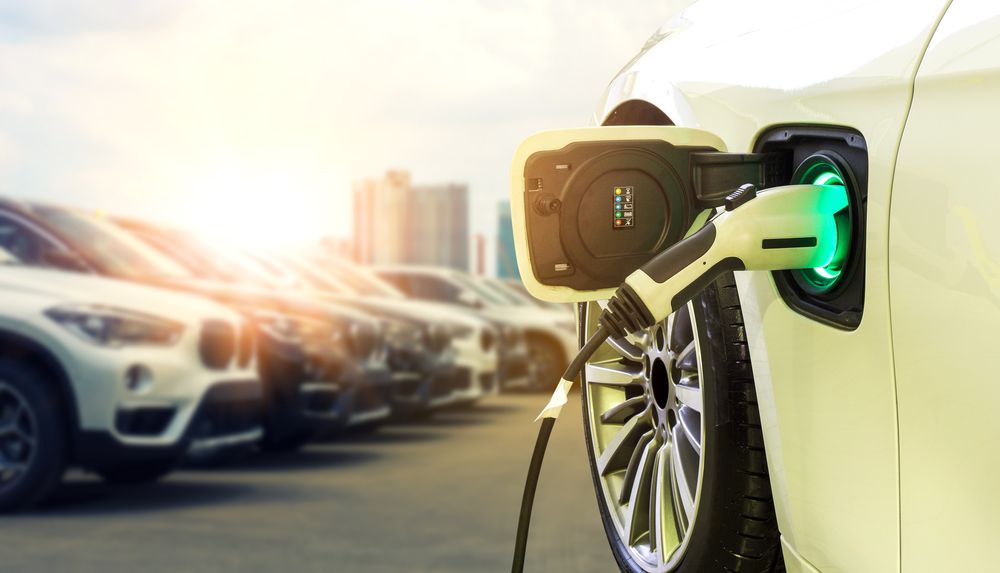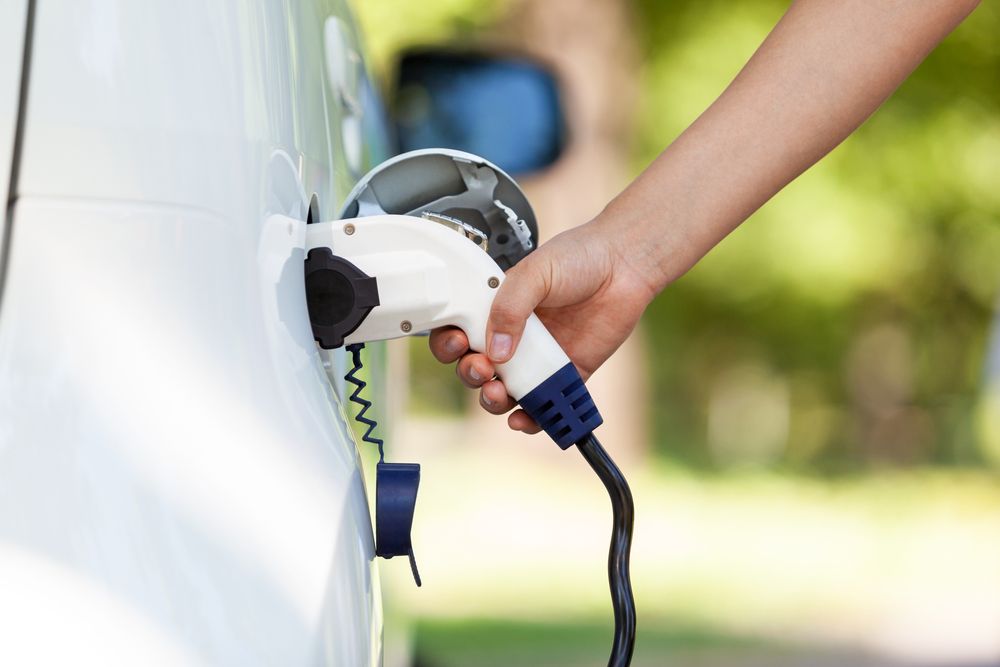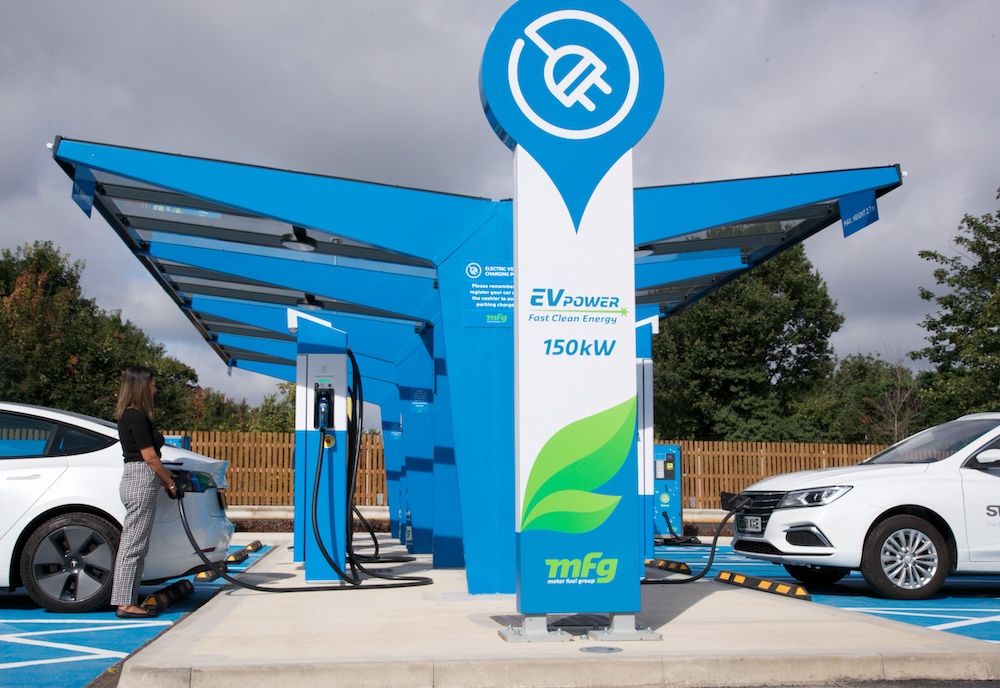The Mayor of London has announced the city’s net zero strategy and the actions required to reduce air pollution, tackle the climate emergency and cut congestion in the capital – including the possible introduction of road user charging by the end of the decade.
The plans are outlined in a report published by Element Energy, commissioned by the Mayor of London, and set out the scale of the action required to move London towards a greener future and net-zero carbon emissions by 2030.
In order to reduce transport emissions by anywhere close to the amount required to clean up London’s air, achieve net-zero by 2030 and cut congestion, the capital will have to see a significant shift away from petrol and diesel vehicle use and towards walking and cycling, greater public transport use and cleaner vehicles. At the moment, just two per cent of vehicles on the roads in London are electric.
The new analysis shows that more action will be required by City Hall, particularly around reducing vehicle use in London, but that the Mayor does not have the funding or powers to deliver everything that’s required alone.
Between 2000 and 2018, London achieved a 57 per cent reduction in workplace greenhouse gas emissions, a 40 per cent reduction in emissions from homes, but just a 7 per cent reduction in emissions from transport.
The Mayor has already taken action to tackle toxic air, carbon emissions and congestion in the capital by introducing and then expanding the Ultra Low Emission Zone and tightening Low Emission Zone standards – which is expected to lead to a five per cent fall in CO2 emissions from cars and vans in the zone and a 30 per cent cut in toxic nitrogen oxide emissions from road transport. But the new report shows how much more action is required.
The report sets out that to achieve anywhere near a 27 per cent reduction in car vehicle kilometres, London will need a new kind of road user charging system implemented by the end of the decade at the latest. Such a system could abolish all existing road user charges – such as the Congestion Charge and ULEZ – and replace them with a simple and fair scheme where drivers pay per mile, with different rates depending on how polluting vehicles are, the level of congestion in the area and access to public transport. Subject to consultation, it is likely there would be exemptions and discounts for those on low incomes and with disabilities, as well as consideration around support for charities and small businesses.
The Mayor recognises that London could benefit from more sophisticated types of technology to introduce this kind of simple, fair road user charging scheme and has therefore asked Transport for London to start exploring how it could be developed. However, it’s clear the technology to implement such a scheme is still years away from being ready.
The toxic air pollution being caused by London traffic is leading to nearly 4,000 premature deaths a year and children growing up with stunted lungs. The action already committed by the Mayor will reduce the number of air quality-related hospital admissions by one million by 2050, helping save the NHS and social care system £5 billion. However, if no additional action is taken to reduce air pollution beyond the existing polices, around 550,000 Londoners would develop diseases attributable to air pollution over the next 30 years and the cumulative cost to the NHS and the social care system is estimated to be £10.4 billion.
Given the urgency of the climate crisis and the damaging impact of toxic air pollution, the Mayor wants Londoners and those who drive within London to shift from polluting cars to electric vehicles, public transport and sustainable active travel, such as walking and cycling. He has set out a number of policies to help drive this.
The potential approaches under consideration are:
- Extending the Ultra Low Emission Zone (ULEZ) even further to tackle more of the dirtiest vehicles: extending the current zone beyond the north and south circular roads to cover the whole of Greater London, using the current charge level and emissions standards.
- Modifying the ULEZ to make it even more impactful in reducing emissions: building on the existing scheme by extending it to cover the whole of Greater London and adding a small clean air charge for all but the cleanest vehicles.
- A small clean air charge: a low-level daily charge across all of Greater London for all but the cleanest vehicles to nudge behaviour and reduce the number of short journeys by car
- Introducing a Greater London boundary charge, which would charge a small fee to non-London registered vehicles entering Greater London, responding to the increase in cars from outside London travelling into the city seen in recent years.
The Mayor and TfL will now begin a period of consultation with Londoners, local government and businesses.
The Mayor of London, Sadiq Khan, said: “This new report must act as a stark wake-up call for the Government on the need to provide much greater support to reduce carbon emissions in London. It’s clear the scale of the challenge means we can’t do everything alone.
“But I’m not willing to stand by and wait when there’s more we can do in London that could make a big difference. We simply don’t have time to waste. The climate emergency means we only have a small window of opportunity left to reduce carbon emissions to help save the planet, and, despite the world-leading progress we have made over the last few years, there is still far too much toxic air pollution permanently damaging the lungs of young Londoners.
“This is also a matter of social justice – with air pollution hitting the poorest communities the hardest. Londoners on lower incomes are more likely to live in areas of the city most badly affected by air pollution and least likely to own a car. Nearly half of Londoners don’t own a car, but they are disproportionally feeling the damaging consequences polluting vehicles are causing.
“We have too often seen measures to tackle air pollution and the climate emergency delayed around the world because it’s viewed as being too hard or politically inconvenient, but I’m not willing to put off action we have the ability to implement here in London. I’m determined that we continue to be doers, not delayers – not only to protect Londoners’ health right now, but for the sake of future generations to come.
“It’s clear the cost of inaction – to our economy, to livelihoods, to the environment and to the health of Londoners – would be far greater than the cost of transitioning to net-zero and reducing toxic air pollution. That’s why I’m today beginning a conversation with Londoners, local government and businesses about the best way forward to create the green, sustainable city we all want to see.”
Christina Calderato, Director of Transport Strategy and Policy at Transport for London said: “Road based transport has for many years been a major contributor towards poor air quality and carbon emissions and we are determined to reverse this through a wide range of programmes across TfL. The world-leading road user charging schemes we’ve delivered throughout the last 20 years have been really effective in addressing congestion and tackling air quality across London, but it is clear that as a city we need to go further. These new approaches will allow us to take further steps towards a net-zero city and we will ensure that Londoners and those who regularly visit London are involved as we progress this work in more detail.”
Industry reaction:
BVRLA Chief Executive, Gerry Keaney, said: “We welcome the Mayor of London taking the initiative with these plans, which complement the BVRLA’s ongoing support for shared mobility models and a clear roadmap for road pricing. Importantly, this announcement gives the industry time to implement the changes that are essential to making the targets reality.
“London does not only have an emissions problem, it has a congestion problem too. We need fewer, cleaner private cars on the road. Car clubs, alongside rental and leased vehicles provide the solution to this while keep people mobile and offering positive alternatives to public transport.
“From electric car clubs to zero-emission delivery vehicles, BVRLA members are already providing the answers to the problems faced in London and beyond. Our members will play an essential role in the success of these plans and will have invaluable insights that will help the mayor deliver; we need to be at the table and ensure our voices are heard.”
Logistics UK’s Head of Policy – South, Natalie Chapman, commented: “Logistics UK fully supports the Mayor for London’s environmental aims and the need to take action on air quality. The sector has already made huge strides towards a Net Zero future, with 70% of HGVs currently meeting Euro 6. Today’s announcement raises concerns regarding potential additional costs to logistics businesses that are already facing recent increased charges as a result of the higher congestion charge and higher Penalty Charge Notice (PCN) costs recently introduced on London’s red routes. A Greater London boundary charge and further clean air charges – as proposed in the announcement – will place additional stress on industry, which already operates on small margins of between one and three per cent. Logistics UK is keen to see greater detail on the consultation proposals; any new measures introduced must be proportionate, achievable and ensure that logistics businesses can continue to deliver for the capital, its residents and its workforce.”
Oliver Lord, UK Head of Clean Cities Campaign said: “This is one of the most significant announcements from any European city right now. No leader should declare a climate emergency and air pollution crisis and then skip the details, so I congratulate the Mayor and his team on this report. With these plans, the Mayor commits London to a growing momentum to phase out polluting cars. We now need all actors to play their part – the London boroughs and this Government included – so that climate talk becomes the climate walk.”
Nick Bowes, Chief Executive of Centre for London said: “The Mayor’s ambitious targets for London to reach net-zero carbon emissions by 2030 are to be applauded but as this report highlights, it is going to take a monumental effort and some very difficult decisions to achieve them.
“Transport is key to meeting the Mayor’s goals, and City Hall will need greater support from government to get there, including agreeing a fair and sustainable funding deal for Transport for London.
“The Mayor is right to call for something beyond current initiatives like the ULEZ, and Centre for London has long-called for a fairer system of road user charging so we’re pleased to see that this is up for consideration. If implemented, pay per mile road user charging has the potential to be a game changer in the shift from polluting cars to public transport, walking and cycling, including schemes.”
Image: Shutterstock.














